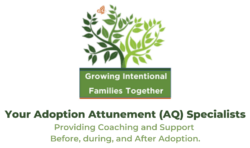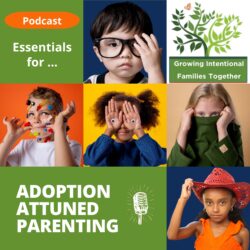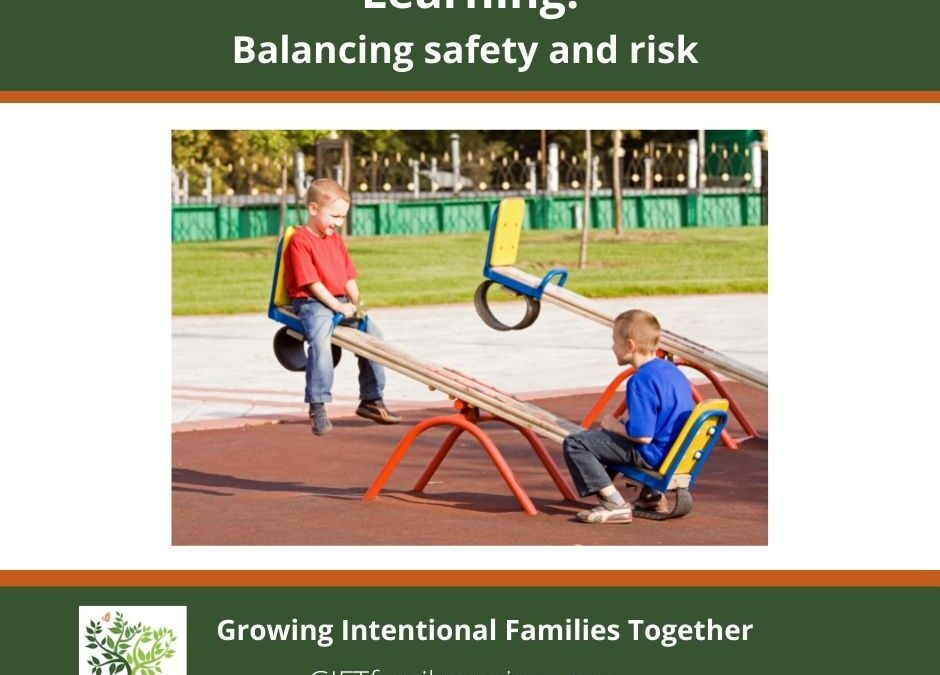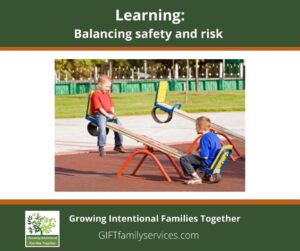As parents, we raise our families following a compass built on our Values and Beliefs. We rely on these guideposts for inspiration, strength, and reassurance. Our Values and Beliefs operate as guardrails that provide us a sense of safety which in turn gives us courage. Of course, we want to protect our kids from danger and harm even while we admit a painful fact: life involves risks that we cannot totally eliminate.
We work with that reality and do our best to manage these risks. Certainly, we yearn to keep our children safe and we also want them to learn, grow, and flourish. There lies the rub: how to find the balance between keeping them safe and allowing them the space and opportunities to learn in the face of unavoidable risks.
Lesson 1: Growth occurs beyond our/their comfort zone. It is our job to nudge and reassure our kids, bit by bit so they stretch, and experience a small thrum of fear and daring that happens in the space of Possibility. We acknowledge their fear of failure and inform them that success without failure is wishful thinking, a dream built of smoke and mirrors. We teach them that success on the first attempt almost never happens–not only for kids but also for adults. This includes us as well. Keeping that in mind, we remind them that trying–even when it is hard and/or risky–is the only road to success and skill-building.
Lesson 2: Without risk, they cannot learn. We teach our kids that failure is not the Fate-to-be-avoided-at-all-costs. It is the refining process that provides stepping stones to competency and success. We want them to develop identities as Trier. Only by becoming Triers, can they ever hope to become competent. Competency is the foundation of success in everything in life.
We can share stories of our own efforts and risk-taking and give examples of our own try-fail-and-try-again that ultimately lead to success. We also want to share stories that don’t end in success and help our kids see the learning that we received instead. (Notable point: failure often teaches us more effectively and much of that learning is far more valuable than easy success.)
Lesson 3: Life can and does change in an instant. In recent years, this lesson has been driven home with heartbreaking reality. Whether it is random violence, unexpected accidents, devastating weather, or some other crisis, we parents cannot prevent bad things from happening to ourselves or our kids. Bad stuff happens, always has, always will. The responsibilities of parenting are not limited to keeping our kids safe, housed, fed, and educated. We help them grow essential life skills like responsibility, perseverance, initiative, etc., and we also teach them right from wrong.
Still, we must not get lost in the disciplining and “raising” of our kids and lose sight of what is truly important: building a life-long relationship of connection that will survive the vagaries and difficulties of day-to-day family life.
Lesson 4: We can’t protect our kids 24 hours a day. We must teach them to think on their feet, to be capable of responding to difficulty and danger, and learn to engage and trust their own sense of capability. This belief in self will serve them well. In fact, being able to think on their feet in the face of difficulty might even save their lives.
As parents, we never like to see our children get hurt. This can lead us to rescue our kids to insulate them from the painful consequences of their choices. If we intervene too soon when we see them struggling to do or cope with something, we steal their opportunity to learn and grow. Even worse, we telegraph a message that they are incapable, cannot tackle hard stuff on their own, and need our help. This makes us feel good about ourselves. But when we are too quick to engage in rescue, we teach our children learned helplessness.
Then we throw up our hands in frustration and wonder why they can’t–or won’t try to handle hard things and situations. Competency comes through practice and this is true for decision making too. Our kids must practice making decisions and sometimes–actually, often–they will get it “wrong.” But the good news is, they can learn to do and choose better. If they get the chance to practice, fail, and learn.
Lesson 5: We must help our children embrace life and look for joy. Let’s face it our kids are far more aware of the dangers of violence than most of us faced as children. As a kindergartner, I never feared that a gunman would shoot me at school. However, my own six-year-old grandson asked me this exact question after the Uvalde shooting in Texas.
To counterbalance their vivid awareness of life’s dangers, we must help our children to see joy wherever it occurs in their lives: the pleasure of friends, the beauty of a sunset, the comfort of friendship, the generosity of neighbors, the delight of riding bikes, swimming on hot days, and the security of a home to name just a few. By helping them see and embrace joy, we also remind ourselves to do it. The entire family feels the positive impact.
Lesson 6: We all benefit when we live with kindness and compassion. I believe that kindness is never wasted. At the very least, it blesses the person extending kindness. Currently our world overflows with an excess of hate and animosity. Society could use a generous dose of kindness, compassion, and respect to counterbalance these negative forces. We’ve all heard the maxim, “Be the change you want to see in the world.”
If like me, you dream of a kinder, gentler, more equitable world, take action to make that happen. Whenever you have the opportunity, choose to be kind, generous, and part of the positive change-making. Work to eliminate inequity and suffering. Embody respect within your family as well as the other levels of life. Engage as a family in activities and projects that improve your neighborhood, school, and community.
Here are some questions to ask yourself
How am I modeling my values within my family?
How much of my time and attention am I spending on what and who truly matters to me?
What can I do to strengthen the connection with my children so they feel seen, heard, and understood?

Learn how the coaches at GIFT Family Services can help you and your family navigate your adoption journey. We’ve faced our share of family challenges and crises, ridden the metaphorical rollercoaster, and our families have not only survived; they have thrived. We offer experience, neutrality, and understanding. GIFT coaches are available to present workshops online. We do not place children for adoption nor do we facilitate adoptions. Contact us: 1-800-653-9445. Visit our Facebook page to join the conversation.
Listen to our podcast and …

Read these books written by our coaches.





